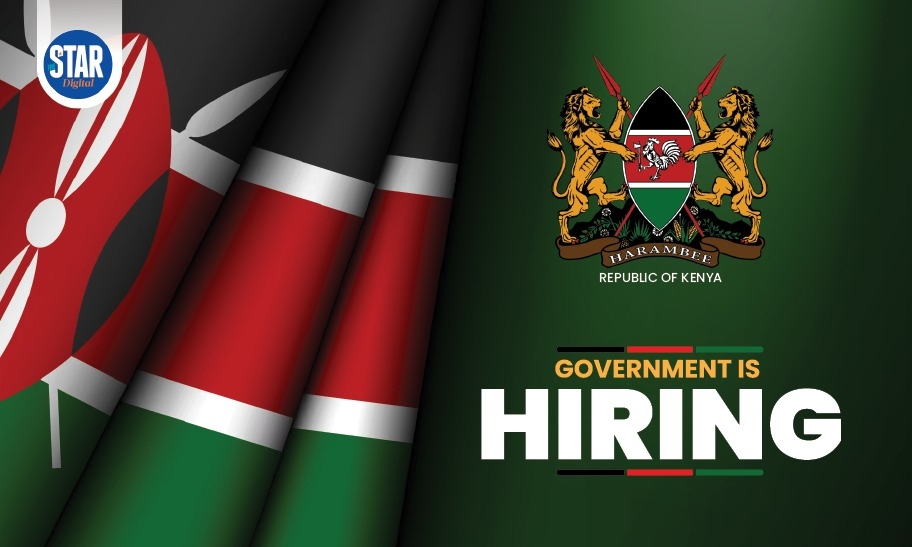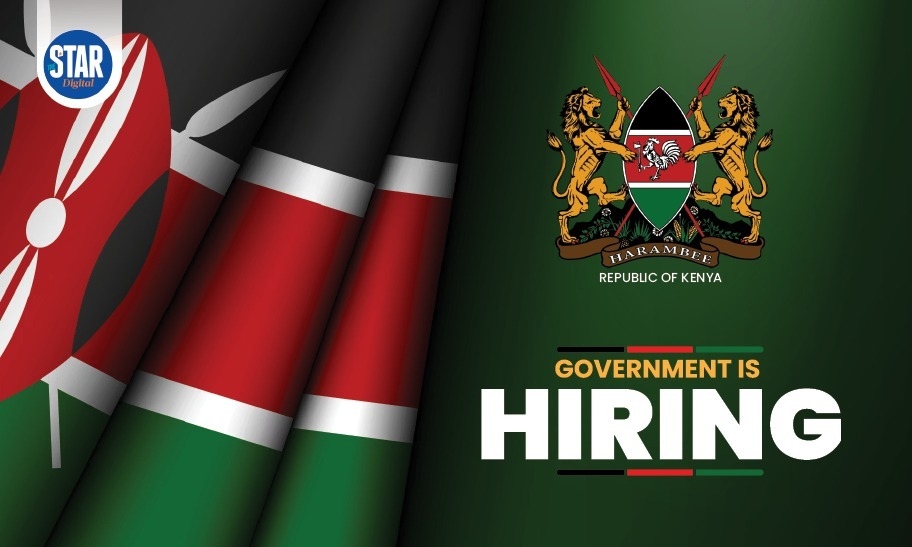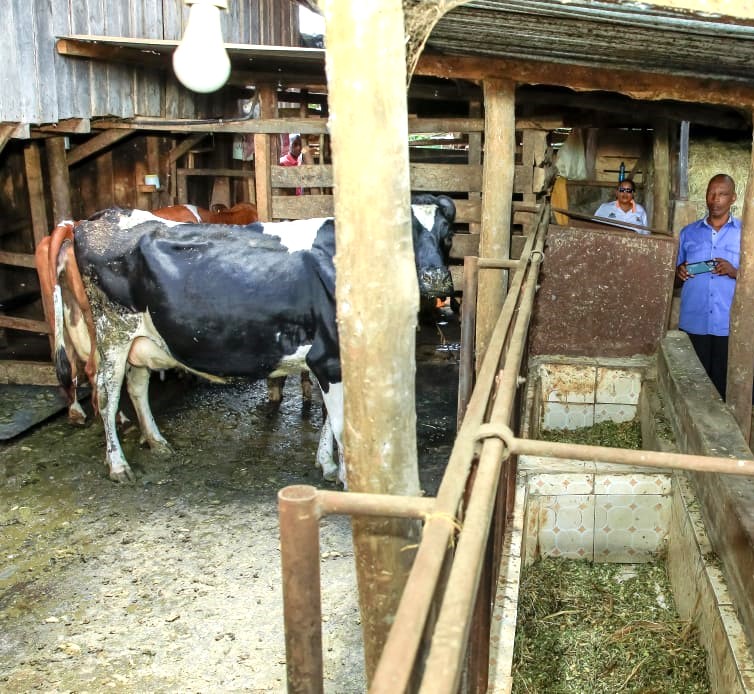 A dairy cow in a pen in Kirinyaga county. Animal feeds have been a source of worry for many dairy farmers in the country
A dairy cow in a pen in Kirinyaga county. Animal feeds have been a source of worry for many dairy farmers in the countryFor years, Kenyan farmers have been complaining of expensive and poor quality livestock feed that is eating into their profits.
They say the feed weakens livestock, reducing milk production from animals.
The Association of Kenya Feeds Manufacturers (Akefema) said the low supply of raw materials have contributed to the high cost of feed.
The country produces about 2.5 million tonnes of animal feed annually, with 80 per cent of raw materials imported from neighbouring countries of Uganda, Tanzania, Malawi and Zambia.
Prices of maize and soybeans, key feed ingredients, have been rising over the years and increased by 30 per cent just last year alone.
This has in turn made it difficult for farmers to sustain their practice and led to closure of many small milling plants.
Chairperson Joseph Karuri said the challenges are worsened by erratic weather patterns in different parts of the country.
"The result of all these challenges is unaffordable feed and loss of livelihoods that have affected the national food security," he said.
The country is currently exploring emerging and policy reforms to provide solutions to the problems.
Karuri cited genetically modified materials to reduce feeds costs and stabilise supply chains, relieving farmers and producers.
Farmers depend heavily on compounded feeds, with 41 per cent of the feeds being purchased by poultry farmers and 39 per cent by dairy farmers.
"Out of the 2.5 million tonnes produced annually,
0.5 million tonnes are made by informal producers and home mixing.
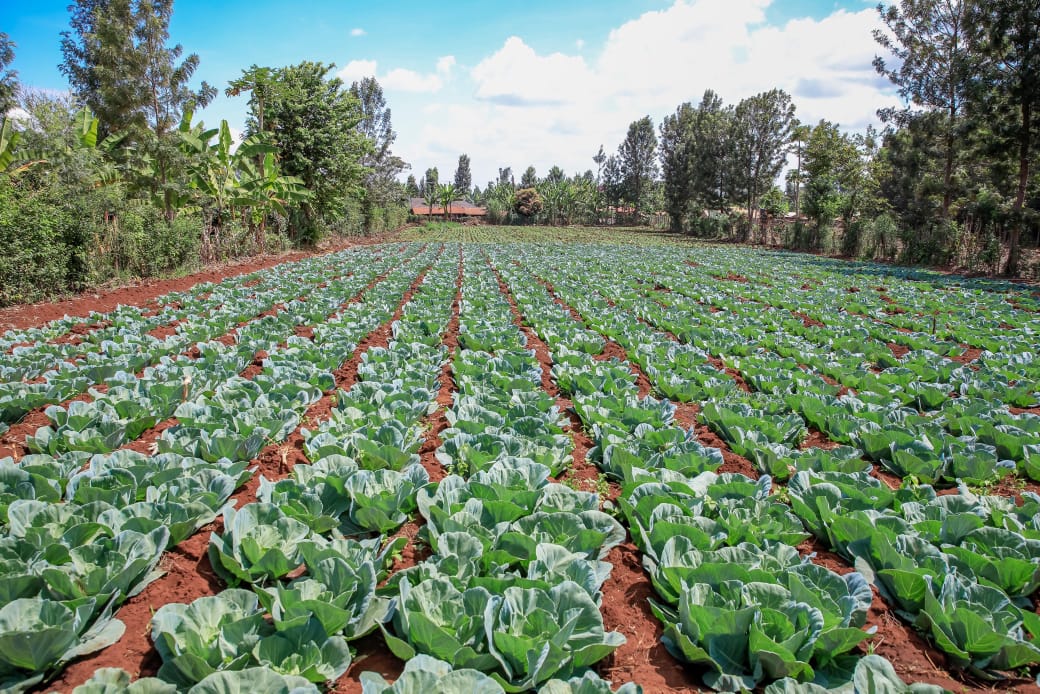 Cabbages being grown in a farm in Kirinyaga county
Cabbages being grown in a farm in Kirinyaga countyLarge scale farmers produce about 100,000 tonnes annually while middle class producers make between 50,000 and 100,000 tonnes and small scale producers 50,000 tonnes and below," Karuri said.
Animal feed account for more than 70 per cent of the cost of production for milk and eggs farmers, allowing GMO maize and soya meals in the manufacture of animal feeds would significantly lower the prices.
Karuri said more than 90 per cent of the soya and maize produced globally are genetically modified and are considerably cheaper with higher quality compared to non-GMOs.
He said most food secure countries that have a competitive livestock sector have embrace GMO maize and soya bean meals in production of feed.
The local sector has obtained the necessary advisory from the National Bio-safety Authority (NBA) that there's sufficient capacity to regulate importation of GMOs for animal feed.
Animal feed are made up of 60 per cent sources of energy that include maize, wheat and rice, 24 per cent proteins source including soya, cotton cake, insects and bone meal while enzymes and minerals make up 16 per cent.
The sector now proposes duty waivers on imports to ease access to raw materials, review of levies and taxes in the counties and nationally and local production of yellow maize, sunflowers and soy beans.
Partners also want the use of GMO industrial residual for animal feed and contract farming escalated between farmers and millers.
Agriculture and Food expert Allan Liavoga said 72 countries have approved and regulated genetically modified products according to their needs.
Twenty nine countries produce genetically modified crops while 43 others, including Australia, Mexico, Canada, Ethiopia, USA, Nigeria, Pakistan, South Africa and Phillipines import them.
But locally, production of GMOs has been affected by misinformation.
"These concerns have been there despite scientific evidence confirming that they are safe. Compositional changes in foods may arise from any method of genetic modification and must be assessed to ensure there's reasonable degree of safety," Liavoga said.
Liavoga said the misconceptions are fuelled by social media.
Tests, focus on toxicity, possible allergenic effects, unintended health complications on consumers and their nutritional characteristics.
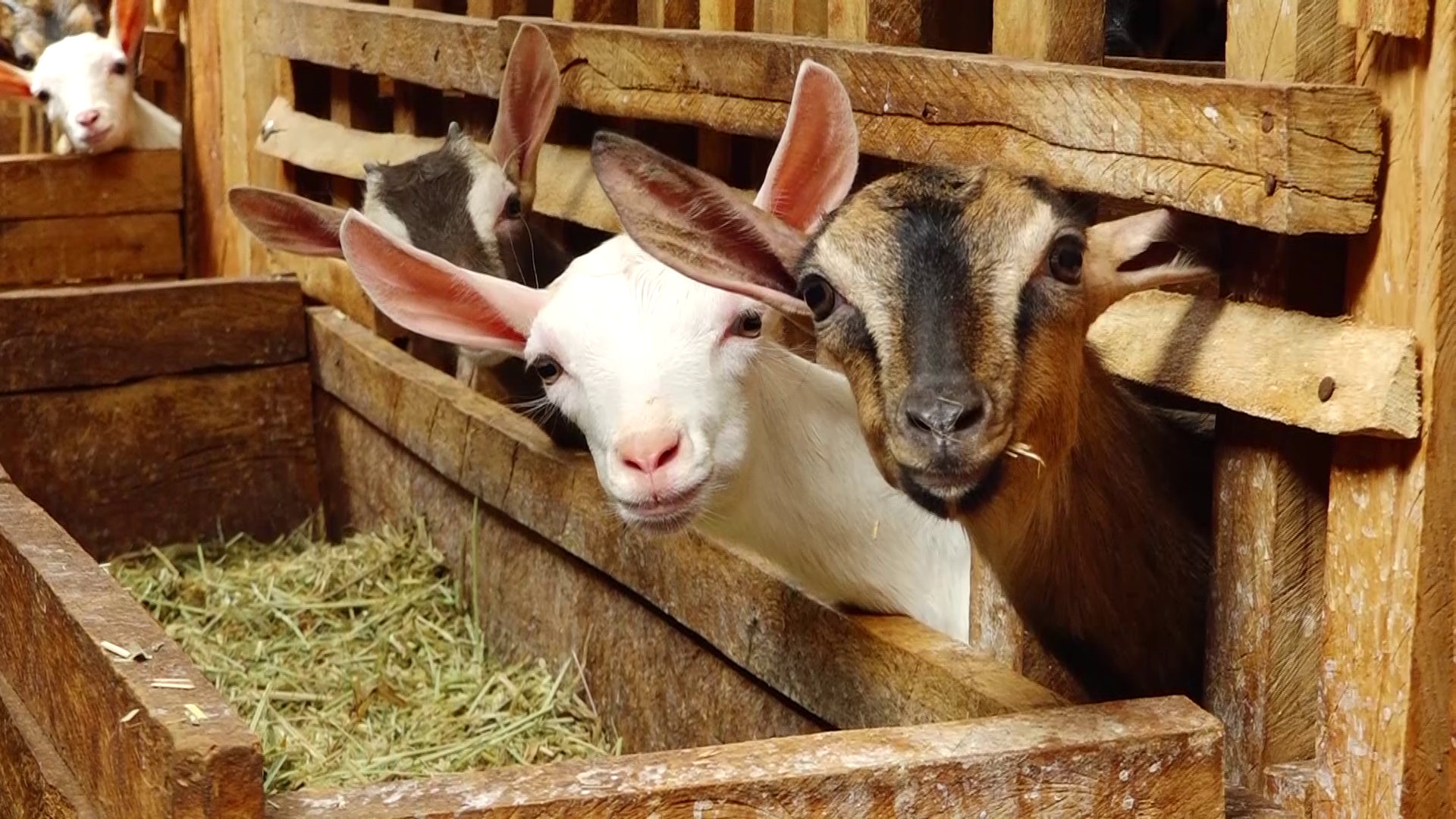 Dairy goats in a farm in Kangema, Murang'a county.
Dairy goats in a farm in Kangema, Murang'a county.In Nigeria and Ghana, for example, BT cowpeas that resist Marica pod borers – a pest that causes major yield losses – were approved in 2019, raising farmers' returns.
In Burkina Faso, BT cotton was approved in the 2000s but the invention faced challenges after processors raised issues with its poor fibre quality that could not compete internationally.
The issue was picked by anti-GMO crusaders to fight GMOs, framing it as a safety concern.
In Kenya, BT maize that controls insects damage, reduces fungal infections and aflatoxin contamination, was approved in 2022.
But the product is yet to be commercialised due to cases filed in court.
Margaret Karembu, a director at International Service for the Acquisition of Agri-biotech Applications said the first bio-tech crops were commercialied in 1996.
Since then, bio-technology has speedily advanced, contributing to food security and stabilising agriculture in countries that have embraced them.
"We recognise the news for indigenous knowledge, organic farming, traditional breeding and variety selection and integrated pest management," she said.
"All these are tools available in the agriculture sector. Bio-tech benefits from the best of traditional breeding, indigenous knowledge and cutting edge technology. It doesn't replace them but adds onto them, making them more competitive."
Bio-tech is used even in health to conduct gene cloning, gene editing, DNA detection, cell culture and gene transfer.
According to Karembu, bio-technology positively impacts the economy, saying about 225 million tonnes of soy bean are projected to be exported by 2030.
Main exporters of genetically modified maize include Argentina with 38 million tonnes valued at Sh6 billion, Brazil with 20.50 million tonnes worth Sh5 billion and USA with 77.36 million tonnes worth Sh19 billion.
With global exports amounting to 41.5 tonnes in 2023, Africa produced 380,805 tonnes, with nine countries approving cultivation of GM crops such as cotton, maize, cowpeas, cassava and soybeans.
The European Union is a huge importer of GM products, meaning products imported from the region, especially soy products, have genetic components.
Karembu said failure to commercialise GM products has caused the government huge losses. BT maize, she said, could have added 194,000 tonnes to the national production, about 25 per cent of 2022 maize imports and 14 times World Food Programme aid in 2023.
BT cotton was ready in 2015 but was released in 2020 and could have produced 650 tonnes more crop in 2023, replacing 12 per cent of 2022 imports.
Trials on GM potato started in 2020 with commercialisation expected in 2028. It's benefits are estimated at $163 million for farmers and $84 million for consumers over 30 years.
The delays, she explained, are caused by myths about GMOs, unfavorable coverage by sections of the media, litigations and inadequate extension support.
"The global consensus is solid that approved GM crops are safe and more than 3,000 scientific studies have confirmed that they are safe for humans, animals and environment".
She said there have been 4,485 case by case approvals by regulatory agencies globally for food and animal feeds, and that GM crops have been proved to have numerous environmental and societal benefits.
Farmers depend heavily on compounded feeds, with 41 percent of the feeds being purchased by poultry farmers and 39 percent by dairy farmers.
Feeds account for over 70 percent of the cost of production for milk and eggs farmers, Karuri confirmed, saying that allowing GMO maize and soya meals in the manufacture of animal feeds would significantly lower the prices.
The sector, Karuri pointed out, has obtained the necessary advisory from the National Bio-safety Authority (NBA) that there's sufficient capacity to regulate importation of GMOs for animal feeds in the country.













